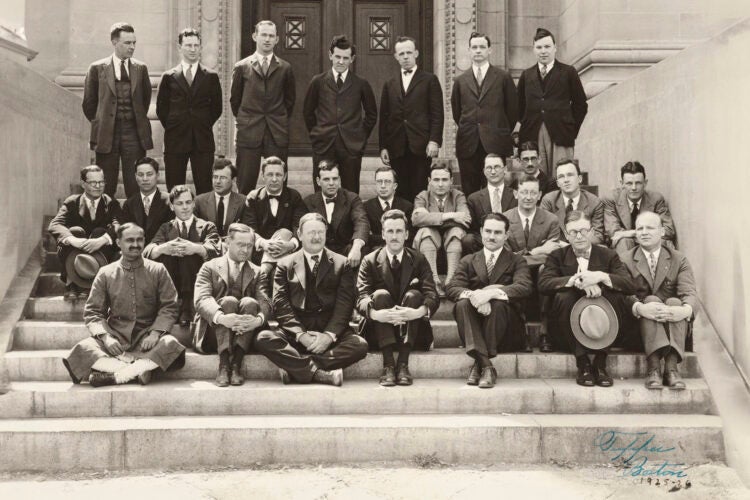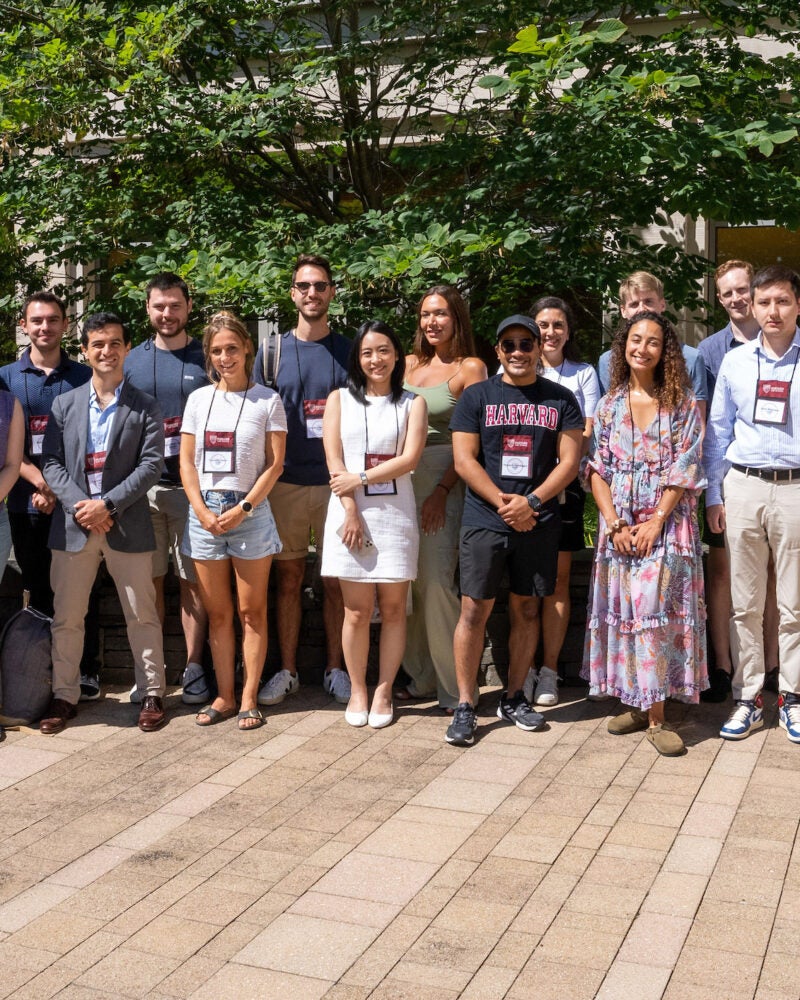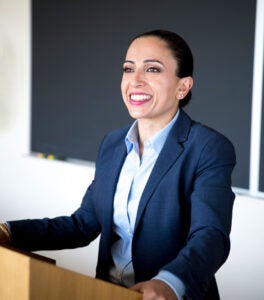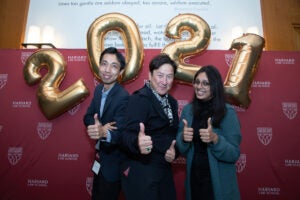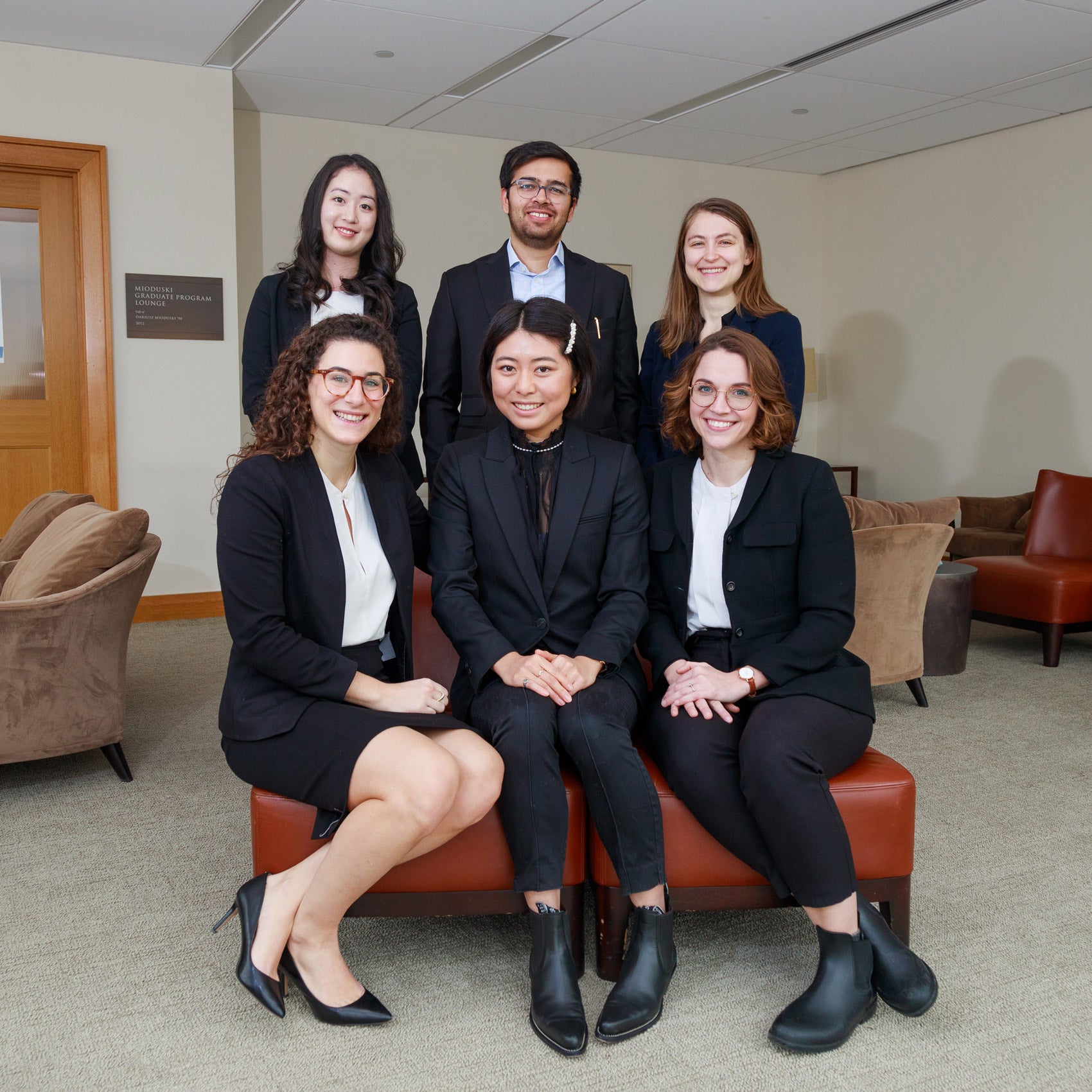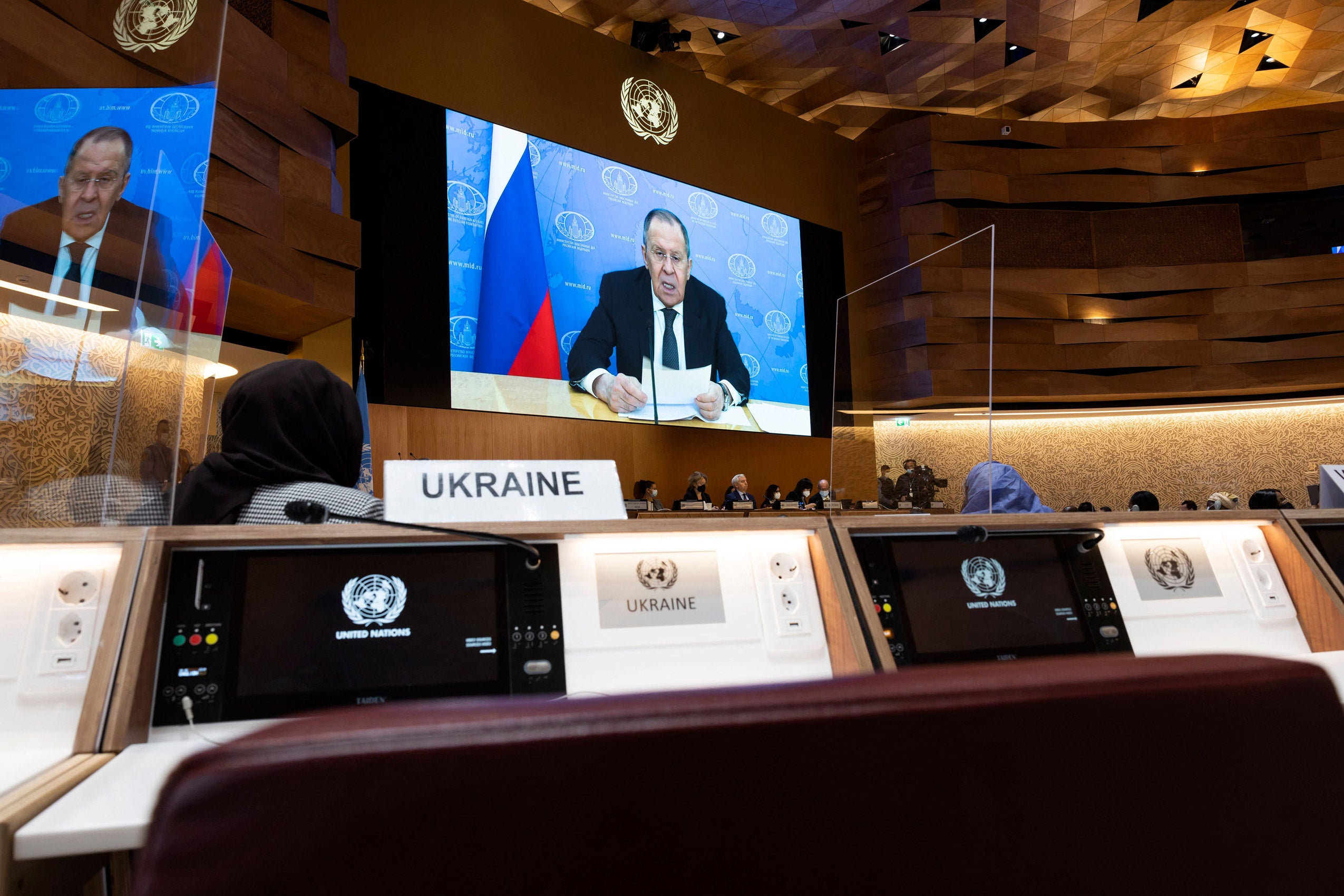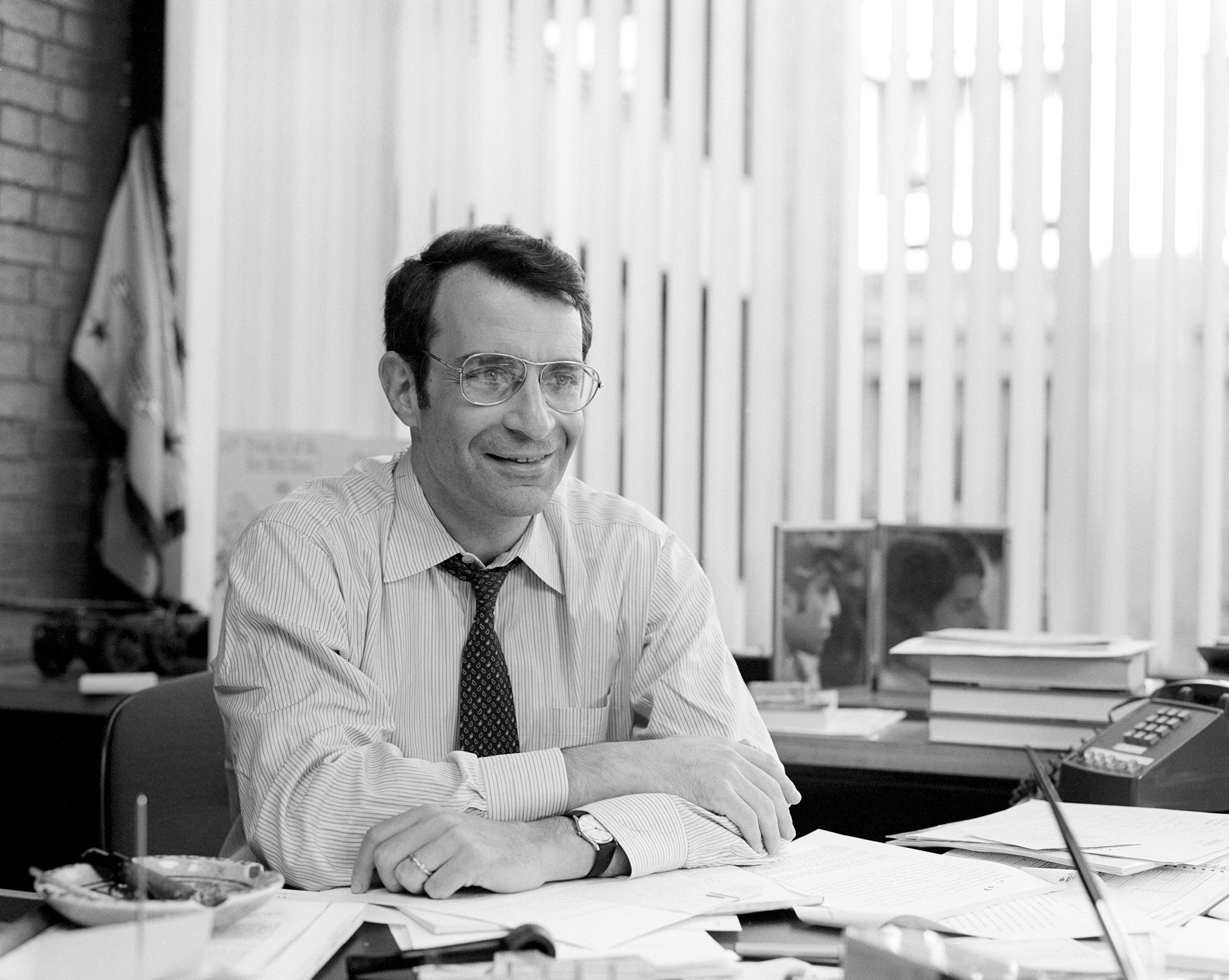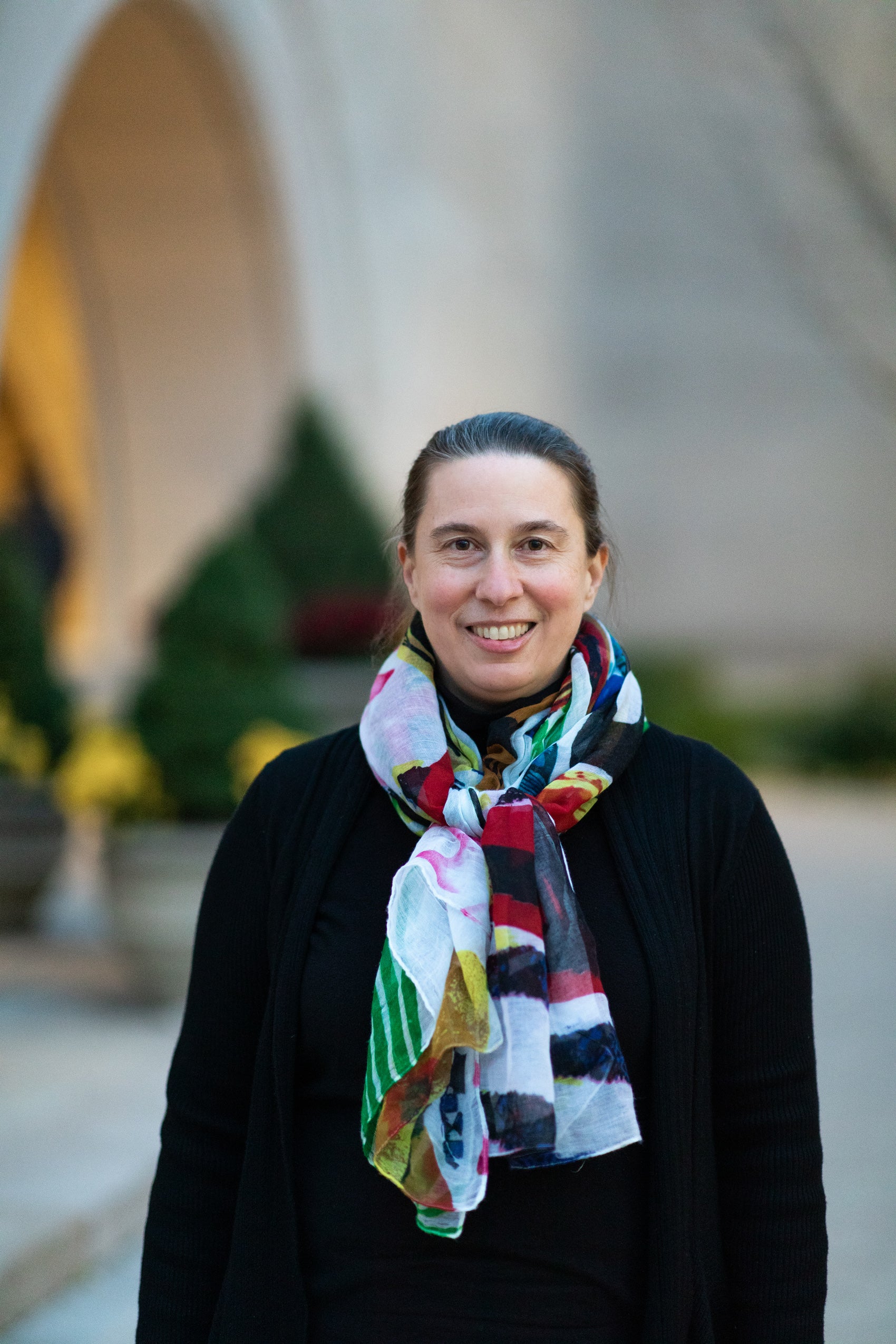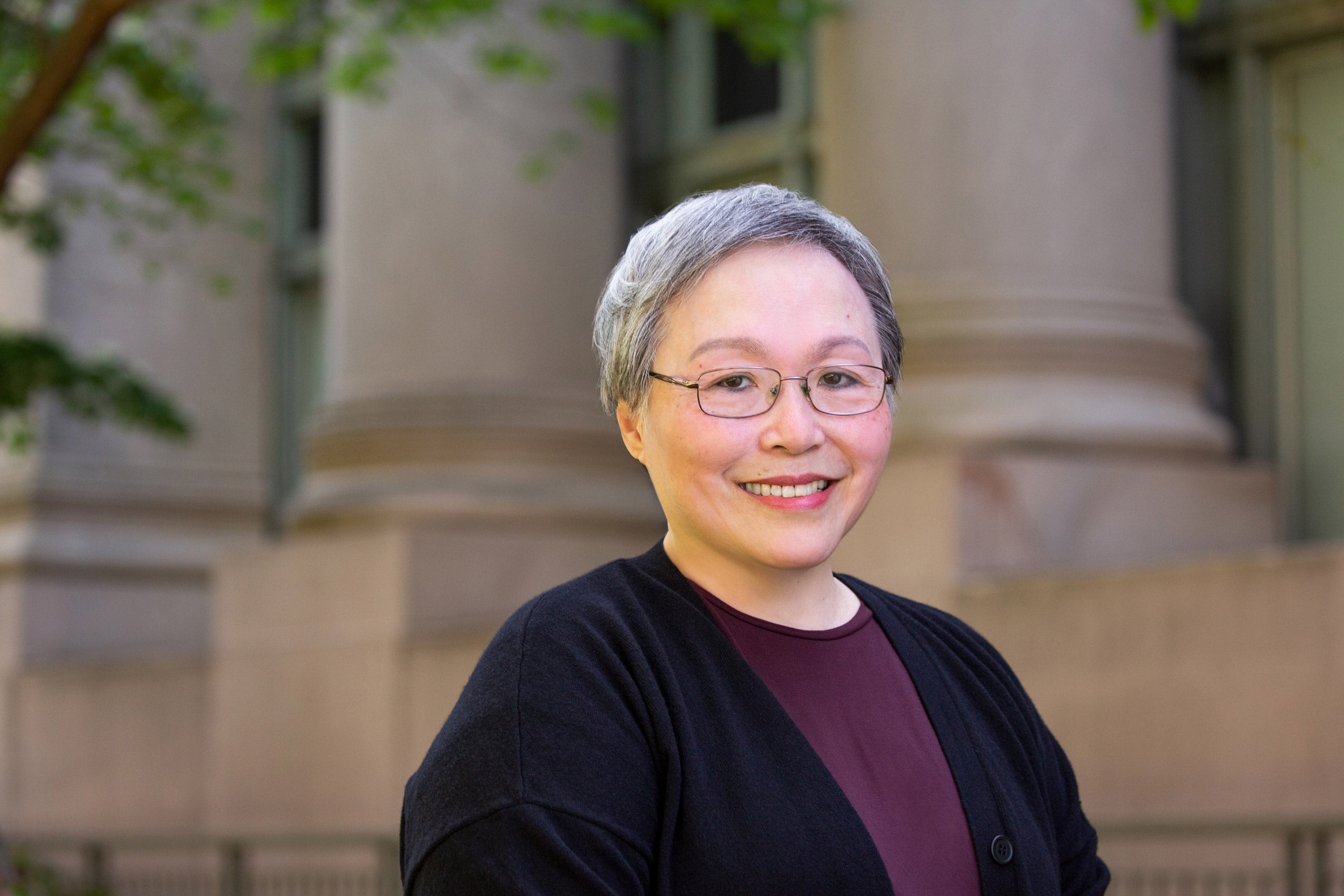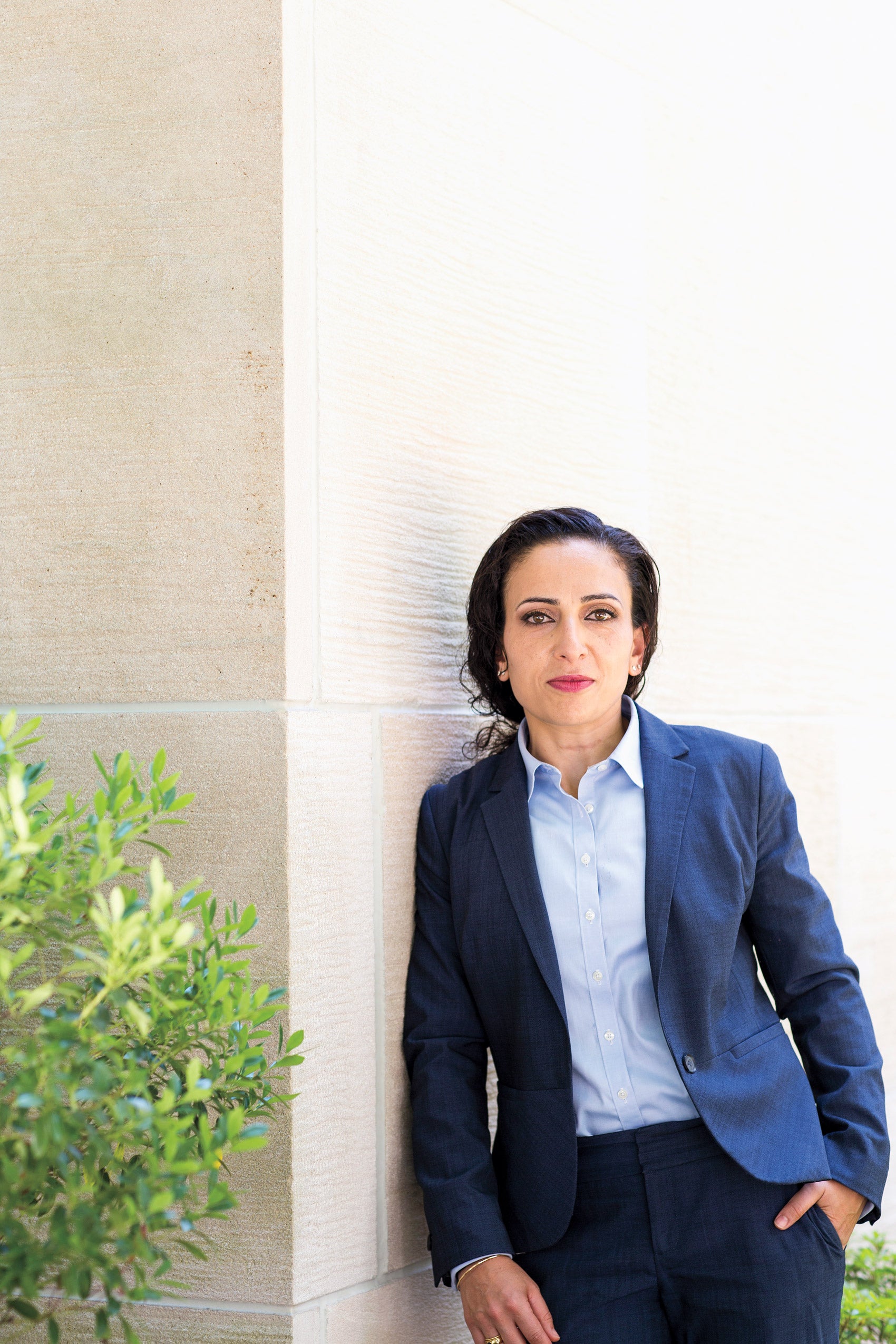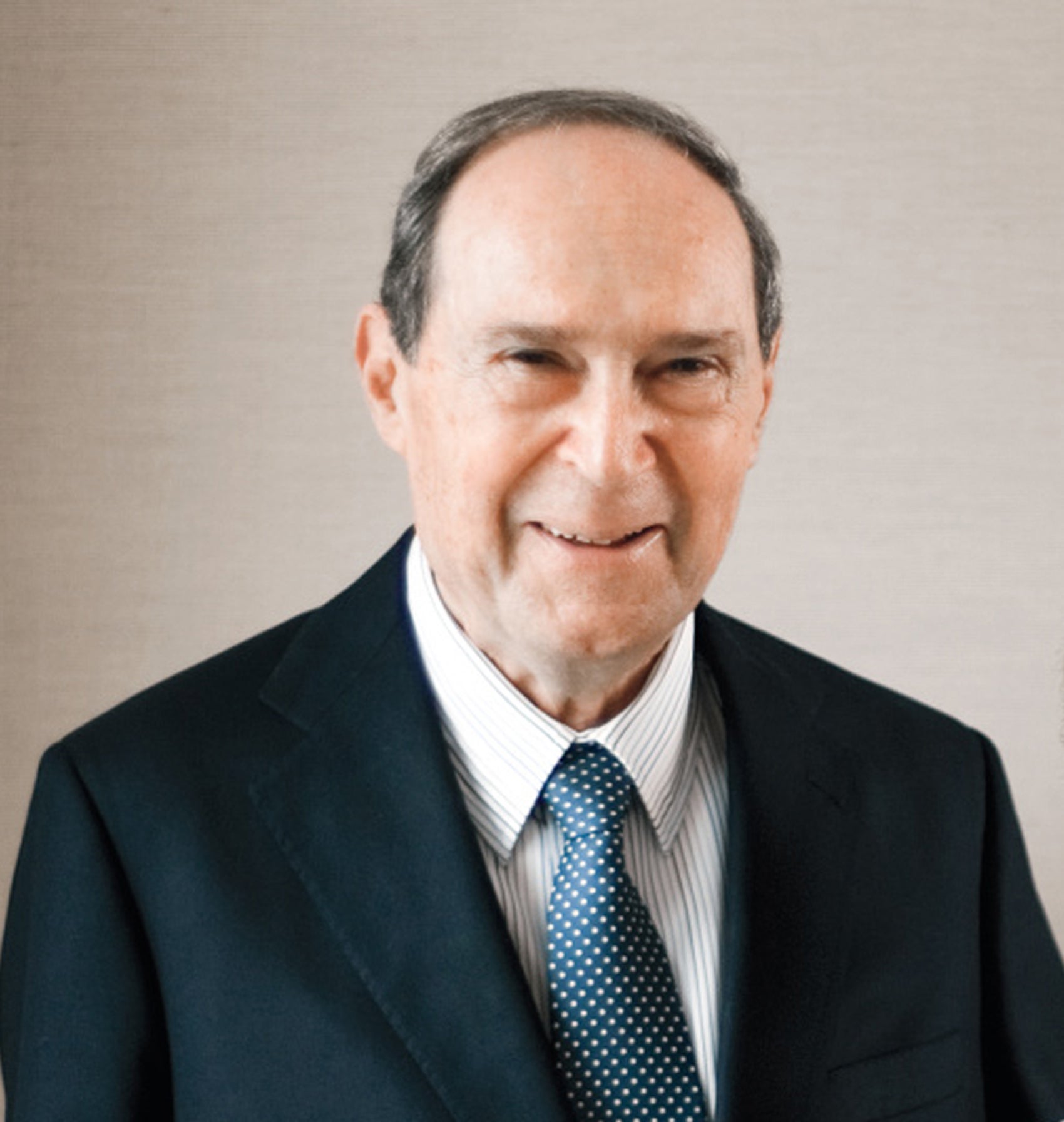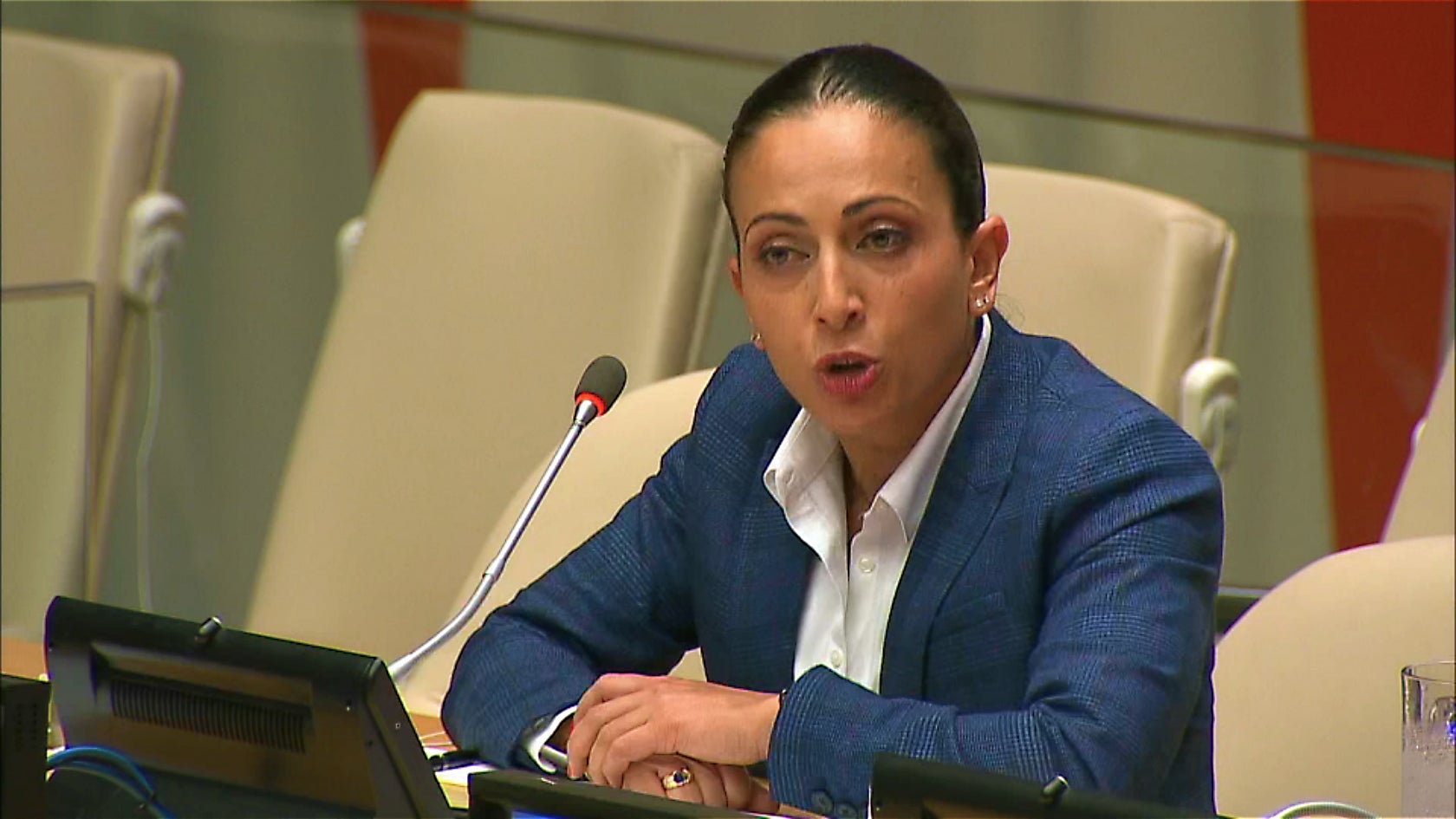People
Gabriella Blum
-
A gateway into public international law
April 5, 2023
A foundational course prepares students for the Harvard Law's offerings in international, comparative, and foreign law.
-
Harvard Law School welcomes the LL.M. Class of 2021 to campus
November 2, 2022
Dean John F. Manning ’85 invited members of the LL.M. Class of 2021, whose LL.M. year was entirely virtual, to experience life on campus and connect with each other in person.
-
Scenes from Orientation 2022
August 30, 2022
Move-in day, receptions, dogs, and picnics: incoming students jump right into campus life.
-
Harvard Law School’s team has won the national round of the 2021-2022 Philip C. Jessup International Moot Court Competition and will advance to the international round, to be held from March 24 through April 10.
-
The war in Ukraine and international law
March 2, 2022
To understand the implications of Russia's full-scale invasion of Ukraine under international law, Harvard Law Today reached out to Professors Gabriella Blum and Naz K. Modirzadeh, both experts in the laws of war.
-
In Memoriam: Philip B. Heymann 1932 – 2021
December 4, 2021
A highly principled public official and beloved colleague, Heymann had a distinguished career in academia, and serving in four presidential administrations, including in the solicitor general’s office under President John F. Kennedy, in several U.S. State Department jobs for Lyndon Johnson, as a Watergate prosecutor, as assistant attorney general during the Carter administration, and as deputy attorney general under Bill Clinton.
-
In Memoriam: Philip B. Heymann 1932 – 2021
December 2, 2021
When asked what he wanted to be remembered by, longtime Harvard Law Professor and former Watergate prosecutor Philip B. Heymann ’60 replied: “Speaking truth to power.” Heymann, a beloved colleague and distinguished public servant, died Nov. 30 at his home in Los Angeles. He was 89.
-
Catherine Peshkin appointed assistant dean for Harvard Law School’s Graduate Program and International Legal Studies
November 22, 2021
Catherine Peshkin has been appointed assistant dean for the Harvard Law School Graduate Program and International Legal Studies.
-
Jeanne Tai, who influenced the careers of a generation of lawyers around the globe, retires
June 9, 2021
Jeanne Tai, who as a senior administrator at the HLS Graduate Program and International Legal Studies has deeply influenced the careers of thousands of lawyers and legal academics around the world, will retire on June 15 after 24 years at Harvard Law School.
-
Modirzadeh briefs UN on self-defense and state silence
March 5, 2021
On Feb. 24, Professor of Practice Naz Modirzadeh ’02, founding director of the Harvard Law School Program on International Law and Armed Conflict (HLS PILAC), briefed a United Nations Security Council Arria-formula meeting convened by the Permanent Mission of Mexico.
-
Gustave M. Hauser: 1929 – 2021
February 22, 2021
Gustave Hauser ’53 was a cable television pioneer and, with his wife Rita Hauser ’58, a dedicated supporter of Harvard Law School.
-
Hiroshima Atomic Bombing Raising Questions 75 Years Later
August 6, 2020
The dawn of the nuclear age began with a blinding, flesh-melting blast directly above the Japanese city of Hiroshima on Aug. 6, 1945. It was 8:16 a.m. on a Monday, the start of another work day in a city of nearly 300,000 inhabitants. An estimated two-thirds of that population — nearly all civilians — would soon be dead. The dropping by American warplanes of that first atomic bomb, code-named Little Boy -- and another, code-named Fat Man, three days later in Nagasaki — led to Japan's surrender on Aug. 15, 1945, and the end of World War II. At the time, the morality and legality of those nuclear attacks was hardly the subject of public debate...Four years ago, President Barack Obama became the first American head of state to visit Hiroshima's Peace Memorial. He offered condolences, but pointedly did not offer apologies. "The morning of August 6, 1945 must never fade," Obama told a crowd gathered near the shell of the sole building left standing where the bomb exploded. "That memory allows us to fight complacency. It fuels our moral imagination. It allows us to change." Pope Francis took a more critical stance during a November visit to that same peace memorial in Hiroshima. "Using nuclear power to wage war is today, more than ever, a crime," the pontiff declared, adding it was immoral even to possess nuclear weapons. Some prominent experts in the law of war are also reexamining the Hiroshima attack. "There is no question that a dropping of a large nuclear weapon amongst the civilian population is a war crime," says Harvard Law School professor Gabriella Blum. "Under the current laws of war, if you know you are going to impact civilians, you must provide warning and you must take precautions to avoid harming civilians to the extent possible. There is no doubt none of that was considered and none of that was seriously weighed in reference to Hiroshima and Nagasaki."
-
Being in control of U.S. nuclear weapons taught Riley Vann how to cope—and maintain leadership—under pressure
November 5, 2019
As a U.S. Air Force Nuclear and Missile Operations officer, Riley Vann was one of 90 missileers whose job it was to ensure that U.S. nuclear weapons are ready to launch on command. The experience taught her how to cope—and maintain leadership—under pressure.
-
The Promise and Perils of Designer Genes
August 5, 2019
The industrialization of synthetic biology is possible thanks to the same trend that has supercharged computing power...In the future, everyone might be an amateur synthetic biologist, programming the matter of life. If digital apps on our smartphones have transformed how we live and work, imagine what biological apps might do. It could be something as domestic as engineering a houseplant that rarely needed watering, or something as transformative as creating new forms of life...Even the advanced biotechnology of the future will require more expertise than pushing a button on a cellphone—but perhaps not that much more, and certainly far less than is required to use current weapons of mass destruction. “What we now have [with biotechnology] is the mirror opposite of nuclear weapons, which require great infrastructure, access to controlled materials and knowledge that you can’t simply go and look up online,” said Gabriella Blum, a professor at Harvard Law School and the coauthor of the book “The Future of Violence: Robots and Germs, Hackers and Drones—Confronting a New Age of Threat.” “So we ask ourselves: What’s people’s propensity to inflict harm, and in what ways?”
-
Why Israel’s — and America’s — Legal Justifications for Assassinations Don’t Add Up
October 18, 2018
...This month, The Intercept published an article about the history of this Israeli legal effort. In the story, Harvard law professor Gabriella Blum explained how, when she was a young lawyer working for the Israel Defense Forces, she and her team sought to give a legal justification for Israel’s burgeoning assassination program.
-
The Internationalists Mini-Forum: The Internationalists Mini-Forum: Wars of Self-Defense, An Exception that Swallows the Rule
November 16, 2017
An op-ed by Gabriella Blum. Wars used to be justified by their goals. Territorial expansion, restitution or claiming property, securing a throne, and mass religious conversion were all acceptable goals under the tenets of Just War Theory; and they all justified war to begin with, particularly if you ended up attaining them at the end. But since we no longer live in a legal world that sees war as the continuation of diplomacy, when we do end up going to war, it is becoming harder to define our goals. Indeed, our preoccupation with the legality or the justification for war often clouds our ability to see war – and judge it – in terms of goals sought and achieved.
-
At the UN General Assembly, Modirzadeh discusses protecting health care in armed conflict
October 4, 2017
HLS Professor of Practice Naz K. Modirzadeh ’02 gave a talk at a United Nations General Assembly event on Sept. 22 called, “International Humanitarian Law: Addressing violations in light of recent conflicts,” which focused on failures of international law to protect health care systems in armed conflict in Syria involving designated terrorists.
-
House sets aside Trump’s biggest budget cuts
September 18, 2017
The House this week quietly pushed aside some of the most controversial proposals in President Trump’s budget request...By throwing out an enormous initial proposal for non-defense cuts, Trump may have made it easier for Congress to adopt cuts that are nonetheless significant. Psychologists call the strategy “anchoring,” because it anchors the first number— in this case $54 billion in discretionary non-defense cuts — at the center of a negotiation. “It’s a hugely powerful tool, as behavioral economists and psychologists have proven,” says Gabriella Blum, a negotiations expert at Harvard Law School. “Once you throw a number out there, it serves as a very powerful anchor that your mind is drawn to. It forces the conversation around it.”
